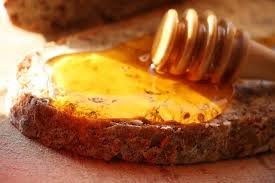Introduction
Mielado, a term often associated with honey, is a fascinating subject with rich historical, agricultural, and culinary significance. Derived from the Spanish word for honeydew, mielado’s refers to a type of honey produced from the secretions of certain insects rather than directly from flower nectar. This unique honey variant offers distinct flavors and properties that set it apart from conventional honey.
What is Mielado?
Mielado, or honeydew honey, is produced by bees that collect the sugary secretions (honeydew) excreted by insects like aphids or scale insects feeding on plant sap. This honey is known for its darker color, richer taste, and higher mineral content compared to flower honey.
How Mielado is Produced
- Insect Secretions: Certain insects feed on the sap of plants and excrete a sugary substance known as honeydew.
- Bee Collection: Bees collect this honeydew from plant surfaces.
- Honey Production: Bees process the honeydew in their hives, converting it into honeydew honey, or mielado.
Characteristics of Mielado
Mielado has several distinct characteristics:
- Color: Typically darker than flower honey.
- Flavor: Rich, malty, and less sweet with a complex flavor profile.
- Nutrient Content: Higher in minerals such as potassium, calcium, and magnesium.
- Antioxidants: Contains higher levels of antioxidants compared to regular honey.
Benefits of Mielado
Nutritional Benefits
Mielado is packed with essential nutrients and minerals, making it a healthier alternative to regular honey. Its high antioxidant content helps in fighting free radicals, potentially reducing the risk of chronic diseases.
Health Benefits
- Immune Support: The antioxidants and antibacterial properties of mielado help boost the immune system.
- Digestive Health: Known for its prebiotic properties, mielado promotes healthy gut bacteria.
- Anti-inflammatory: Can help reduce inflammation and soothe sore throats.
Culinary Uses
Mielado’s unique flavor makes it a versatile ingredient in the kitchen. It can be used in:
- Baking: Adds a rich, caramel-like flavor to baked goods.
- Marinades: Enhances the taste of meat and vegetable marinades.
- Dressings: A robust addition to salad dressings and sauces.
How to Choose Quality Mielado
When selecting mielado, consider the following:
- Source: Opt for mielado sourced from reputable producers.
- Purity: Ensure it is pure honeydew honey without additives.
- Certifications: Look for organic or quality certifications.
- Transparency: Prefer producers who provide detailed information about their honey’s origin and production process.
Storing Mielado
To maintain the quality of mielado:
- Temperature: Store at room temperature, away from direct sunlight.
- Container: Use airtight containers to prevent moisture absorption.
- Shelf Life: Properly stored mielado can last indefinitely, though it may crystallize over time.
Frequently Asked Questions (FAQs)
What is the difference between mielado and regular honey?
Mielado’s is produced from the secretions of insects feeding on plant sap, whereas regular honey is produced from flower nectar. Mielado’s is darker, richer in flavor, and has higher mineral content.
Is mielado’s healthier than regular honey?
Mielado’s is considered healthier due to its higher mineral content and antioxidant levels, which provide additional health benefits.
Can mielado’s be used in place of regular honey in recipes?
Yes, mielado’s can be used as a substitute for regular honey in most recipes. Its unique flavor may alter the taste slightly, adding a rich, complex note to dishes.
Does mielado’s crystallize?
Like regular honey, mielado’s can crystallize over time. This is a natural process and does not indicate spoilage. Gently warming the honey can return it to its liquid state.
How can I identify pure mielado’s?
Pure mielado’s is usually darker and has a more complex flavor than regular honey. Look for products from reputable sources and check for quality certifications.
Is mielado’s suitable for children?
Honey, including mielado’s, should not be given to infants under one year old due to the risk of botulism. For older children, mielado’s can be a nutritious addition to their diet.
Conclusion
Mielado, or honeydew honey, is a unique and nutritious type of honey with numerous benefits and uses. Its rich flavor, high mineral content, and health-promoting properties make it an excellent choice for those looking to enhance their diet. By choosing quality mielado’s and understanding its distinct characteristics, you can enjoy this special honey to its fullest.
